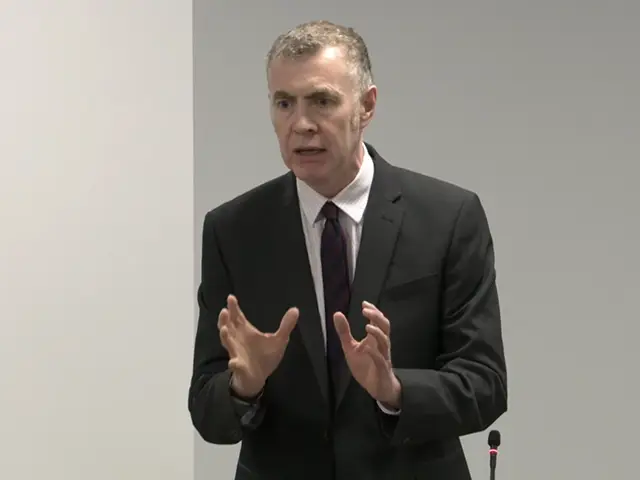Support quality, independent, local journalism…that matters
From just £1 a month you can help fund our work – and use our website without adverts. Become a member today

The rise of artificial intelligence has created a window of opportunity for Wales to transform its economy but also threatens to exacerbate inequalities, the Senedd has heard.
Senedd Members debated a committee report which highlighted the dual nature of AI, with a tension between massive economic opportunities for Wales and a looming threat to jobs.
Plaid Cymru’s Adam Price focused on the central message of Carlota Perez, an economist, that a technical revolution opens up a brief window when latecomers can leap ahead.
He said: “However, she warns, if you miss the opportunity then you end up importing somebody else’s model. So, there’s a crucial opportunity here but we’ve got to grasp it.”
Mr Price, the former Plaid Cymru leader, urged ministers to map the Welsh economy to identify and consider areas in which Wales has a relative competitive advantage.
‘Ultimate disaster’
He told the Senedd: “Every economy needs to know its own wiring, its own capabilities, its own networks and its tacit skills and knowledge.”
Samuel Kurtz, the Conservatives’ shadow economy secretary, agreed AI offers a huge opportunity to maximise what Wales already does well.

Mr Kurtz uses AI in his office but said: “I always believe AI has to have human interaction at the beginning and end. It can’t be left to its own devices. I believe that wholeheartedly.”
Andrew RT Davies, who chairs the Senedd’s economy committee, said the short inquiry heard visions of Welsh AI models “powered by our wind and cooled by our sea” but the committee was concerned about the potential impact on jobs and the environment.
He said: “Depending on who you speak to, the age of AI could usher in another industrial revolution – improving everything from economic productivity to medical diagnosis – or it could be the ultimate disaster, which will destroy our natural resources and replace us all.”
‘Nobody left behind’
While recognising the opportunities, Hannah Blythyn – a Labour member of the economy committee – reflected on the challenges posed by AI during the debate on September 24.

She pointed to evidence from the Institute for Public Policy Research that administrative jobs, which have a mostly female workforce, will be most exposed in the first phase of AI.
Ms Blythyn raised concerns from Trades Union Congress Cymru that artificial intelligence could negatively impact job quality, with workers being monitored and managed by AI.
The former deputy minister said: “Productivity for the economy and protections for workers, who are the backbone of our economy, do not have to be mutually exclusive.”
She warned: “It’s really important nobody is left behind and algorithms and automation are not enabled to exaggerate inequalities – whether that’s in the workplace or wider society. I think, ultimately, we need to harness the power … to eradicate, not exacerbate, inequalities.”
‘Transformative’

Rebecca Evans responded on behalf of the Welsh Government, which accepted all the committee’s eight recommendations either in principle or in full.
The economy secretary said Wales is already playing a “really, really important” part in AI, with “multi-billion-pound” investments under way from Microsoft and Vantage Data Centres.
She told Senedd Members the Welsh Government enabled the “transformative” investment which will bring hyperscale data centre campuses to south Wales. She described AI infrastructure as a “necessary precondition for our future economy”.
But Ms Evans also recognised the risks around AI use, including the potential for bias, the impact on the labour market and concerns about misinformation.
“That’s why ensuring AI technologies are used in responsible, ethical, inclusive and safe ways is so vital,” she said.
Support quality, independent, local journalism…that matters
From just £1 a month you can help fund our work – and use our website without adverts.
Become a member today
